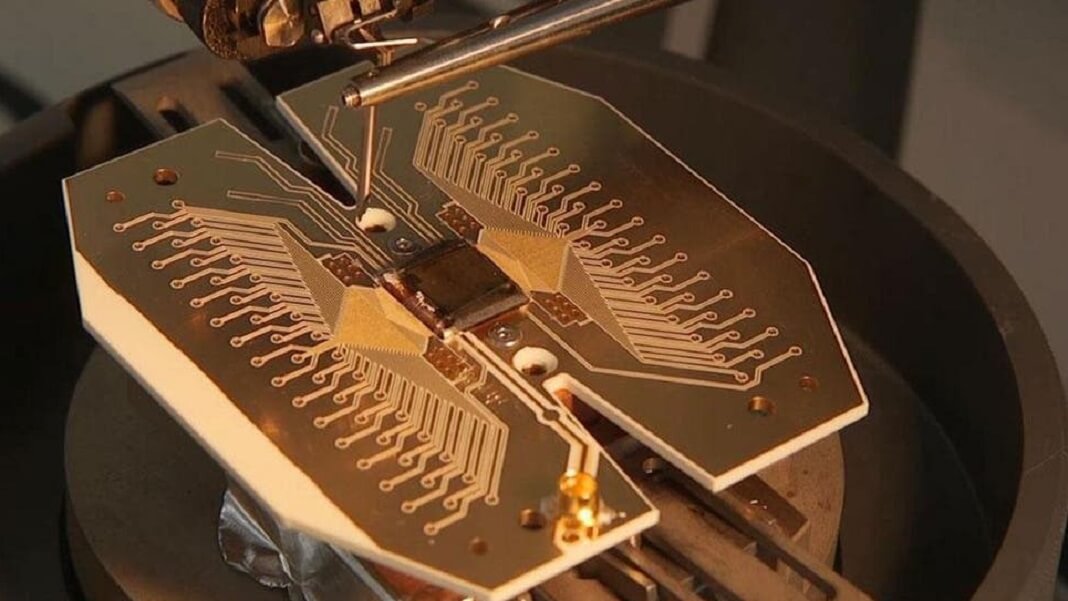
A new method for entwining the fates of fragments of light has overcome some serious obstacles on the road to photon-based quantum computing.

Physicists have just taken an amazing step towards quantum devices that sound like something out of science fiction.

Random errors incurred during computation are one of the biggest obstacles in quantum computing. Researchers have now demonstrated a technique that allows errors to be detected and corrected in real time.

The new chip has 127 "qubits", twice as many as the previous IBM processor. The company called its new Eagle processor "a key milestone on the path towards practical quantum computation".

A team of Dutch researchers reports realization of the first multi-node quantum network, connecting three quantum processors. Their findings mark an important milestone towards the future quantum internet.

Australian scientists and Microsoft Corporation invented a single chip that can generate control signals for thousands of qubits, when the world’s biggest quantum computers currently operate with just 50 or so qubits.

An ambitious plan to build a quantum computer the size of a soccer field could soon become a reality. A startup founded by the researchers behind the idea has just come out of stealth with $4.5 million in funding.

Quantum teleportation is an key way to transmit info in quantum computing. In a new step forward, researchers say it may be possible between electrons.

Most quantum computers being developed around the world will only work at fractions of a degree above absolute zero. Now the researchers developed a quantum processor unit cell that works at 1.5 Kelvin.

A new study shows that heat energy can leap across a few hundred nanometers of a complete vacuum, thanks to a quantum mechanical phenomenon called the Casimir interaction. It could have profound implications for the design of computer chips.

Researchers have made good on their claim to quantum supremacy. Using 53 entangled quantum bits ('qubits'), their Sycamore computer has taken on -- and solved -- a problem considered intractable for classical computers.

Scientists have discovered that terahertz light - light at trillions of cycles per second - can act as a control knob to accelerate supercurrents. That can help open up the quantum world of matter and energy at atomic and subatomic scales.

A team of researchers from Singapore and Australia have implemented a prototype quantum device that can generate and analyze a quantum superposition of possible futures.

Researchers have developed an algorithm to simulate returning a particle briefly to the past. The results suggest new paths for exploring the backward flow of time in quantum systems.

IBM has announced that its System Q One quantum computer has doubled in performance in each of the past two years. IBM is one of the big-name companies working to create a truly useful quantum computer.